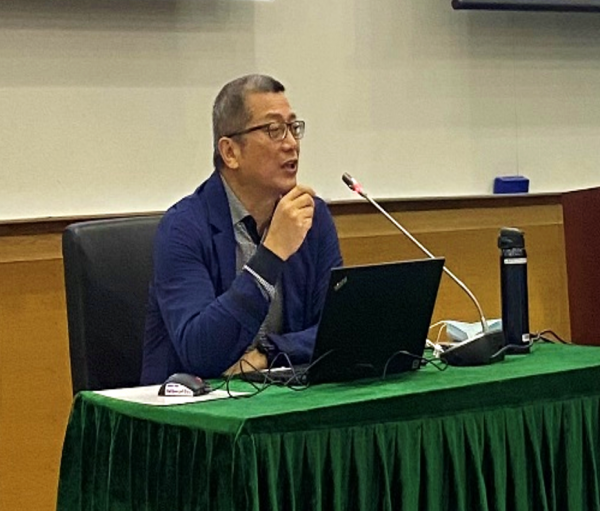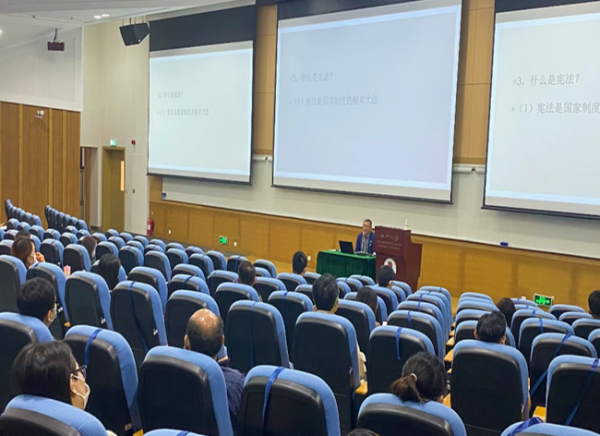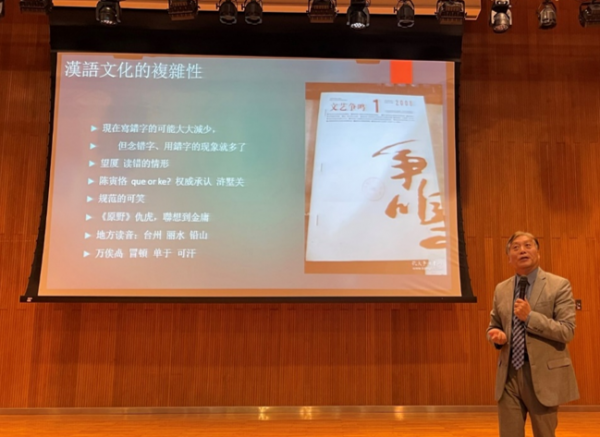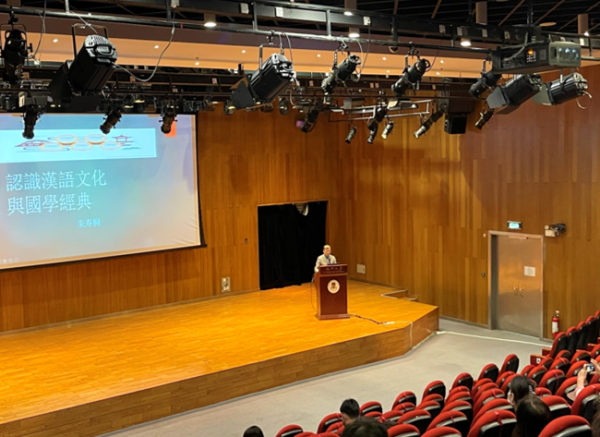UM holds In-house Staff Training on “Introduction to Constitutional Law and Basic Law” and “Chinese Language and Classics”
澳大為員工舉辦《憲法與基本法導論》及《認識漢語文化及國學經典》培訓課程
No. of participants: over 180 參與人數: 逾180人
In order to enhance UM staff members’ understanding of the nation, the Human Resources Section of the Office of Administration organized two in-house training courses, namely “Introduction to Constitutional Law and Basic Law” and “Chinese Language and Classics”, on 10 November and 12 November 2021 respectively.
Prof. LOK Wai Kin, Director of Centre for Constitutional Law and Basic Law Studies in the Faculty of Law (FLL), introduced the objectives of enactment and enforcement of the Constitutional Law, the core principles underlying the Constitutional Law and the Basic Law, as well as the relationship between the Basic Law and “One Country, Two Systems” during the course “Introduction to Constitutional Law and Basic Law”. Around 100 staff members participated.
Prof. ZHU Shoutong, Head of Department of Chinese Language and Literature in the Faculty of Arts and Humanities (FAH), shared the merits, characteristics, profoundness and complexity of Chinese language, the relationship between Chinese language and Chinese culture, as well as the authenticity of Chinese classics during the course “Chinese Language and Classics”. Over 80 staff members participated.
The University hopes that these training courses can enhance staff members’ national knowledge, arouse their interest in Chinese language and culture, promoting patriotism and strengthening their national pride.
為增強大學教職員對國家的認識,行政部人力資源處分別於2021年11月10日和11月12日舉辦了“憲法與基本法導論”及“認識漢語文化及國學經典”內部培訓課程。
澳門大學法學院憲法與基本法研究中心主任駱偉建教授在“憲法與基本法導論”課程中,介紹了制定憲法和實施憲法的目標、憲法與基本法的核心原則,以及基本法與“一國兩制”的關係。共約100名員工參與此課程。
澳門大學人文學院中國語言文學系主任朱壽桐教授在“認識漢語文化及國學經典”課程中,分享了漢語文化的優勢、特性、博大精深與難度係數,漢語文化與中華文化的關係,以及國學經典的原真性。共80多名員工參與此課程。
大學希望透過這兩個培訓課程加強員工對國家的認識,提高員工對漢語文化及中華文化的興趣,弘揚愛國愛澳精神,並增強員工的民族自豪感及家國情懷。
“Introduction to Constitutional Law and Basic Law”
“憲法與基本法導論”


“Chinese Language and Classics”
“認識漢語文化及國學經典”


澳大為員工舉辦《憲法與基本法導論》及《認識漢語文化及國學經典》培訓課程
No. of participants: over 180 參與人數: 逾180人
